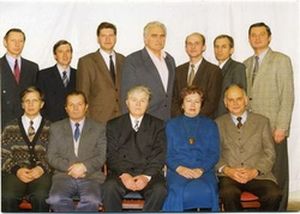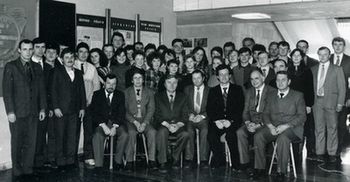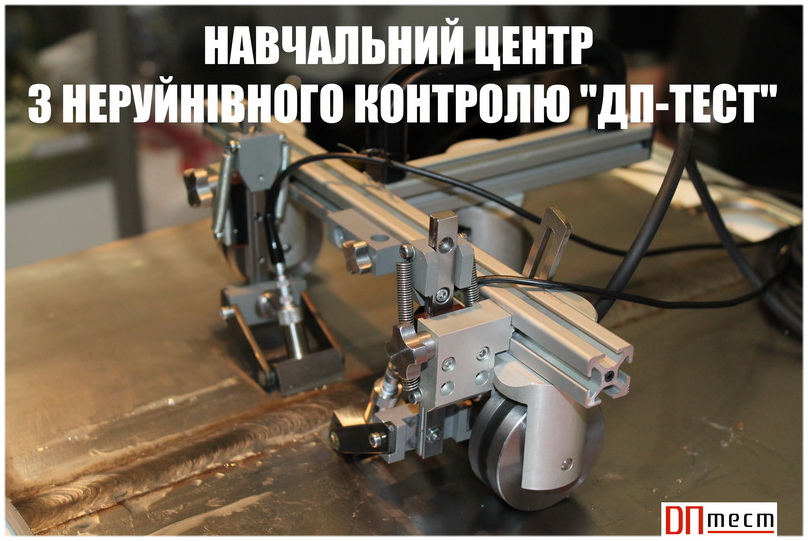
The Department of Non-Destructive Testing Instruments and Systems (NDTIS) was founded in 1981. At that time it was the first department of such profile. There were training the specialists in physical methods of NDT and enteroscopy devices at the department.
From the very foundation of the department, it was headed by Professor, Doctor of Sciences, Stanislav Maievskyi, Honored Professor of the University. Since 2006 the Professor, Doctor of Sciences, Anatoly Protasov have been the department head. Protasov A. has been working for more than 15 years in favor of the department.
A great contribution to the formation and development of the department was made by prof. Stanislav Maievskyi, prof. Kuts Yuri, prof. Volodymyr Tsapenko, prof. Victor Zozulya, prof. Valentin Petrik, prof. Viktor Bazhenov, prof. Valery Pavlov, lecturer Zhanna Pavlenko, laboratory chief Lyudmila Grechchenko.

V. Tsapenko, 1988
Today the NDTIS department is a member of the instrumentation engineering faculty and trains bachelors and masters in NDT instruments and systems for technical and medical diagnostics. The main goal of the department is to train specialists who able individually to solve difficult tasks in one of the most important and most sunrise industries of modern instrumentation engineering. The graduate students are able to build, design and exploit the NDT systems, instruments, and devices for technical and medical diagnostics. The term of "non-destructive control" (NDT) means that the analysis of the object and its conditions occurs without destroying it.
All types of training lessons with students are conducted by the qualified lecturers - professors, doctors of sciences, philosophy doctors. The obtained knowledge and skills graduates of the department apply for work in enterprises and firms which involved in the development, manufacture, implementation, maintenance of computer systems for NDT. The graduates are able to work both in the field of technical diagnostics (diagnostics of the condition of the technical objects for the aviation, railways, machinery needs etc.), and in the field of health (medical diagnostic system). The creation process of a new NDT system is complex and requires knowledge of the methods and devises of NDT, electronics, and electrical engineering, signal theory, methods of information processing, programming, and many other sciences. The studying at the Department of NDTIS is aimed at this knowledge and skills. In conclusion, the graduate of the NDTIS department is a specialist in the wide field, who capable to solve complex tasks and contribute the development of modern science, technology, and technology.










